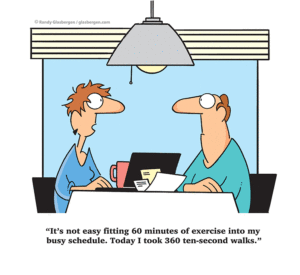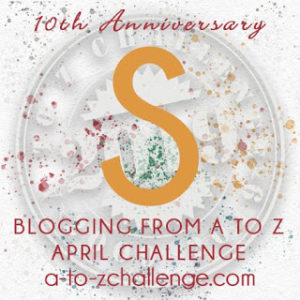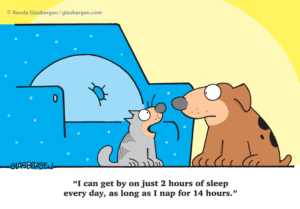Whiplash: An injury to the neck caused by an abrupt jerking motion of the head, either backward or forward; And in the case of writing or speaking, can be caused by a rapid change of topic without prior notice.
Whiplash! – “S” this the last day? I think not!
If you own an Apple device, like an iPad or iPhone and keep your IOS up-to-date, you will notice in the settings section, there is something called Screen Time. Now screen time is supposed to manage how often you are on your devices and also let you know how you spend your time when you are on them. For example, it is now 5:12 p.m. and my screen time total on all devices is 3 hours and 24 minutes. It says that right now I am 1 hour and 36 minutes above my daily average. If I look at the last seven days summary it says I’ve averaged 5 hours and 3 minutes per day which is 13% up from last week.
Don’t get sucked into your screen time data. It is very misleading. It only covers your iPhones and iPads. If you spend time on your Apple computer the same day, that doesn’t count, because Apple doesn’t measure your computer use as screen time. So chances are you have more screen time than is listed. Also, since this is an Apple thing, it doesn’t measure how much TV you watch, which I would consider screen time also. Watching a 2+ hour hockey or baseball game should count as screen time if they want to be accurate, not to mention a Game of Thrones marathon. Then there are things that are measured as screen time, that shouldn’t be measured. When I’m driving or taking a walk and listening to a podcast or music, that is not screen time IMHO. When I go to sleep at night and set the music to play for a certain amount of time and set it to turn itself off to help me sleep, it’s not screen time. If I were reading a real book, that wouldn’t be considered screen time, so why should reading an ebook be considered so. When I write, I am using the screen as a monitor for what I’m writing, whether I’m typing or handwriting using an Apple Pencil. Yes the app rates it as Productivity or Education, but that should be teased out of screen time data better than it is when it is presented.
So be careful when you analyze your screen time. Think about how you use your devices, what you could be doing instead of viewing a screen and set your goals and activities accordingly.
Whiplash!
Why is it, when I work all day, whether at teaching, writing or other activity, I’m not sleepy when I get home? I’ve found that the more I do, and it doesn’t have to be active stuff, the less tired I become. I notice that a lot of friends about my age, seem to take a lot of naps. That is not to say I don’t occasionally crash and take a nap, but it is a lot less frequent than when I was younger; not that I’m complaining. Even when I wake up early and tired, it doesn’t take long for me to get energized. You should watch me moving around a lot right after I wake up: getting myself ready for the morning, getting things organized for breakfast, for school, and for the day.
I know that sleep is important, but I just don’t do it much other than at night. Even at night, I sometimes have trouble falling asleep, because my mind is always working on something. And when I do sleep, my dreams keep me active; I certainly don’t sleep in my dreams. Maybe that’s why I tend to lose weight overnight.
Whiplash!
Schedules are probably important things to keep, sort of like To Do lists. They set a goal for you and an expectation that this is what will happen today and what you will  accomplish. They’re a guide on the side to make sure you don’t waste your time. Of course, flexibility in schedules is also an important thing to allow. This frees you up to be creative and inspired and lets you throw caution aside and become what you were meant to be.
accomplish. They’re a guide on the side to make sure you don’t waste your time. Of course, flexibility in schedules is also an important thing to allow. This frees you up to be creative and inspired and lets you throw caution aside and become what you were meant to be.
Personally, I like having some things scheduled, but I also enjoy the freedom to have nothing scheduled, depending on the day. There are other things that I should really schedule like writing time, or working on my music time, or learning a language time. In order to do that I’d have to be disciplined and focused. Creating a schedule like that and sticking to it, for the moment, is like making a New Year’s resolution; the idea sounds great, but…
Whiplash!
So how much time on-screen do you spend, whether you own an Apple device or not? Is that a concern? What’s your sleep pattern? How much sleep do you really need? And, do you keep to a schedule, either written or in your mind? Creative minds want to know.
Next time…“T”ease us; that is all each topic is meant to do.



